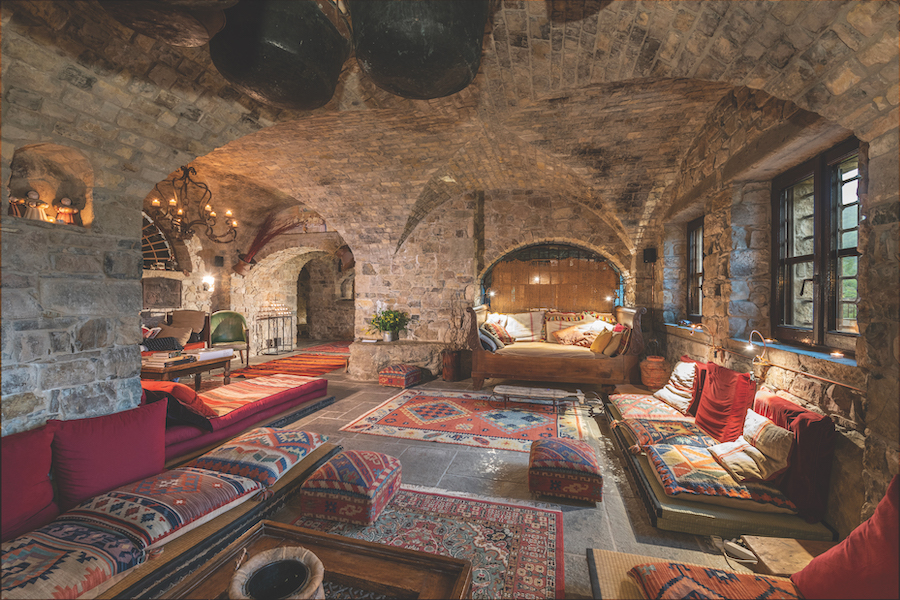At first glance, there is nothing revolutionary about Eremito. Set in an atmospheric rebuilt stone monastery in a secluded Umbrian valley, this picturesque retreat — a member of the Design Hotels group — offers the soft landing you might expect from a boutique Italian hideaway. Little luxuries range from the expected (delicious local cuisine) to the unanticipated (the underfloor heating is a treat).
Marcello Murzilli, the designer turned hotelier who founded Eremito, is not interested in offering just another getaway, however. He wants to give his guests something different: the chance to retreat into themselves. “Eremito is like a contemporary monastery,” he says. “If you want to reset something in your life but you don’t want a monk, you don’t want a guru, come to Eremito.”
This approach is reflected not just in the bedrooms — sparsely furnished “celluzze” evoking monastic cells — but in the absence of everyday distractions including mobile phones, Wi-Fi, even chatter. Guests at Eremito are encouraged to embrace silence as a tool. Talking is banned at dinner, although the after-dinner sessions around the fire include convivial conversation.

Yes, the silent retreat is moving out of the ashram and into the mainstream — perhaps not surprising in a world where the ability to disconnect is becoming a lost art. Stillness brings documented health benefits including a decrease in heart rate and a lowering of blood pressure, and a Harvard Medical School study revealed healthy cell growth in the hippocampus. Devotees of silent retreats say they also lead to extraordinary clarity.
“If you just be still and stop talking, you can check in with what is going on inside your body and inside your mind,” says Caroline Sylger Jones, the founder of the wellness website Queen of Retreats. “You can find answers to issues without thinking intensely about it. The silent retreat is my go-to. It’s the one retreat I always find solace in.”
The website features silent retreats in several formats, from weekend programs to longer options; some stays have set periods of silence, others encourage no speaking at all. Destinations range from Yobaba Lounge’s chateau in the south of France to an estate in Devonshire, England, operated by The Sharpham Trust. Luxury wellness resorts such as Ananda in the Himalayas can also organise a silent retreat for individuals or small groups.

Sylger Jones says that communal silence can be particularly profound. “To step away from your personal backstory and drop down into yourself within a community of people is amazing,” she says. “You feel supported by them in silence — it’s a really unexpected, grounding experience, very powerful.”
At Eremito, guests can join group walks and yoga classes or let their minds wander during a steam session or massage. Murzilli says that as recently as two years ago, his concept was regarded as eccentric, but it is now being embraced.
“Luxury is not about five or six stars anymore, it’s about experiencing the natural,” says Murzilli. “Pure air, organic food, harmony in silence — that is the future of luxury.”




 The Relax Area at Eremito retreat in Umbria. Photography by Marco Ravasini.
The Relax Area at Eremito retreat in Umbria. Photography by Marco Ravasini.